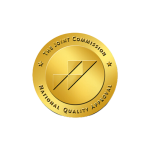What You'll Learn:
- What is Suboxone?
- Alternatives to Suboxone
- Signs of Inadequate Dosing
- Psychological Effects
Savior or Slippery Slope?
Picture a medication that’s a hero to some and a puzzle to others. If Suboxone were a character in a movie, it'd be that mysterious figure in the corner, both good and complex. Designed to combat opioid addiction, Suboxone has its own narrative that's not black and white. Suboxone is a prescription medication used mainly for treating opioid addiction. It's like the sidekick you call when you’re trapped in the dark labyrinth of dependency. Its main ingredients are buprenorphine and naloxone, a duo that helps to curb cravings and withdrawal symptoms.Suboxone and Its Alternatives
Various alternatives offer similar effects. You might hear names like Beluga, Sublocade, or Zubsolv in your research. These medications have slight differences in formulation or release mechanisms but serve the same primary purpose: aiding in opioid addiction treatment.vs. Beluga
Formulation: Differences in active or inactive ingredients could exist. Release Mechanism: Beluga might have a different rate or method of drug delivery.vs. Sublocade
Formulation: Sublocade is a once-monthly injectable form of buprenorphine, whereas Suboxone is generally taken as a daily sublingual strip or tablet. Convenience: Sublocade's once-monthly injection could be more convenient than daily administration. Naloxone: Sublocade does not contain naloxone, which is present in Suboxone to deter intravenous misuse.vs. Zubsolv
Formulation: Both contain buprenorphine and naloxone, but Zubsolv is formulated for higher bioavailability, meaning more of the drug is effectively used by the body. Taste: Users have reported that Zubsolv has a more palatable mint flavor compared to Suboxone. Dosage: Zubsolv tablets are generally smaller but may have equivalent potency due to higher bioavailability.How Long Does Suboxone Stay in Your System?
This varies from person to person, based on factors like metabolism and overall health. However, buprenorphine, one of its main ingredients, has a half-life of 24-42 hours. So, you can expect Suboxone to linger in your system for a while. If you notice persistent cravings or a return of withdrawal symptoms, it's a sign that your dose might be too low. Consult your healthcare provider to discuss adjusting the dosage. Initially, it’s a relief—like finally breathing after being underwater. Suboxone curtails the horrific cycle of craving and withdrawal, allowing many to resume a more normalized life. However, like all medications, it should be taken under strict medical supervision. It has a blocking effect on other opioids, lasting anywhere from 24 to 60 hours. This helps to deter any attempts to misuse other opioid substances while under treatment.Can You Get High on Suboxone?
This is a common question. While it's designed to produce fewer "euphoric" effects compared to typical opioids, misuse can still lead to developing a new dependency. Always follow your healthcare provider’s guidelines. Combining Suboxone and alcohol is akin to mixing fire and gasoline—it’s risky. Both substances depress the central nervous system, and when taken together, can lead to severe respiratory issues, unconsciousness, or even death. Additionally, alcohol use can undermine the effectiveness of Suboxone in managing opioid dependence, potentially leading to a higher likelihood of relapse. It is crucial for individuals undergoing Suboxone treatment to abstain from alcohol to ensure the safety and efficacy of their recovery journey. Prioritizing open communication with healthcare providers about substance use is essential to receive personalized guidance on managing these interactions.Important Safety Measures
- Consult a Professional: Never self-medicate with Suboxone.
- Stick to the Plan: Always follow your healthcare provider's prescribed dose and schedule.
- Mind the Interactions: Always inform your healthcare provider of any other medications or substances you are taking.


